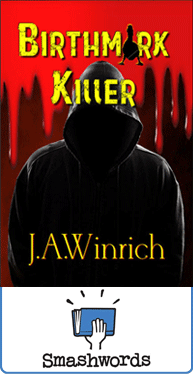Well, it’s happened again where I’ve had a long space between blogs. Why? No excuses, but my mother-in-law turned 100 years old and had to have a party for her!
First, last clichés:
Best laid plans—the most careful plans sometimes do not succeed. Robert Burns used the phrase in “To a Mouse” (1786). It was already a clichè by then.
Unwritten law—Rules accepted by tradition or custom rather than codification in a formal body of law. Plato expressed it and in 1907 Harry Thaw was declared insane and Delphin Michael Delmas coined the phrase: “Dementia Americana; the unwritten law.”
Low man on the totem pole—Lowest-ranking, least important, last in line. H. Allen Smith, a humorist, used this phrase as the title of a book (1941) after the radio comedian Fred Allen used the term to describe him in an introduction to an earlier book. As an aside, the position on an actual totem pole has no such significance. But, the term caught on quickly to become a cliché.
Keep you posted—To supply you with up-to-date information. Originated in the U.S. in early 19th century and comes from accounting, where the latest figures entered into a system are said to be “posted.” Originally-posted up- See The Weekly Oregonian, 1854.
Keep the ball rolling—To sustain or continue an activity without a letup. Some believe this is a metaphor from ball games, but a much earlier use referred to the sun or planets (including Earth) as a rolling ball. Became popular in US during the election campaign of 1840, when the supporters of candidate William Henry Harrison (“Tipecanoe” hero) rolled large “victory balls” in political parades and changed, “Keep the Harrison ball rolling.”
So, how many did you find last time?
I’m not going to look on with a jaundiced eye toward this blog. I will write when I can and try to impart writing knowledge and embed my work with clichés you can find. I refuse to get down in the doldrums over not writing every week on this blog.
Why haven’t I written? I’ve had a lot on my plate with planning my mother-in-law’s 100th birthday party. Can you imagine being 100 years old? It went off great and she even did the Charleston dance which she is known in family reunion talent shows for.
Why do I bring this up? Because I’m writing a book unlike my psychological thrillers I write about a 100 year old woman talking with her great, great granddaughter about her life.
No, I’m not suggesting that you swap horses in midstream and change your writing genres. I started this book a long time ago and since my mother-in-law just turned 100, thought I would let you know how much work it has been writing about a woman who is in her 100s. Why?
Because the research is on-going. I had my little girl watching TV. Wait! When was the TV invented? Not when my 100 year old woman was young. Had her making toast. Wait! When was the toaster invented? Not at that time when she was making the toast. So how did she make it?
That meant that I had to research just about everything. Thank the Lord that we know have internet and I didn’t have to run to the library to do research. There are so many sites that you can find for find when the phrases were first used. Yes, even the words I have my 100 year old use had to be researched. Did they use that phrase at that time period? Every time I had her do something, had it been invented yet?
Who cares if I get it wrong? Well, first of all, I have too much integrity in myself to get it wrong, and I owe it to my readers, even if they might not be old enough to have a clue. So this book is still a work in progress because there is so much research involved, and I love writing my psychological thrillers a bit more. But I’ve learned so much about the past, and how to do research, that writing the book about a 100 year old woman has been very enlightening.
Research is important to you and to your readers. Don’t let them down.
Keep Writing,
Julie



